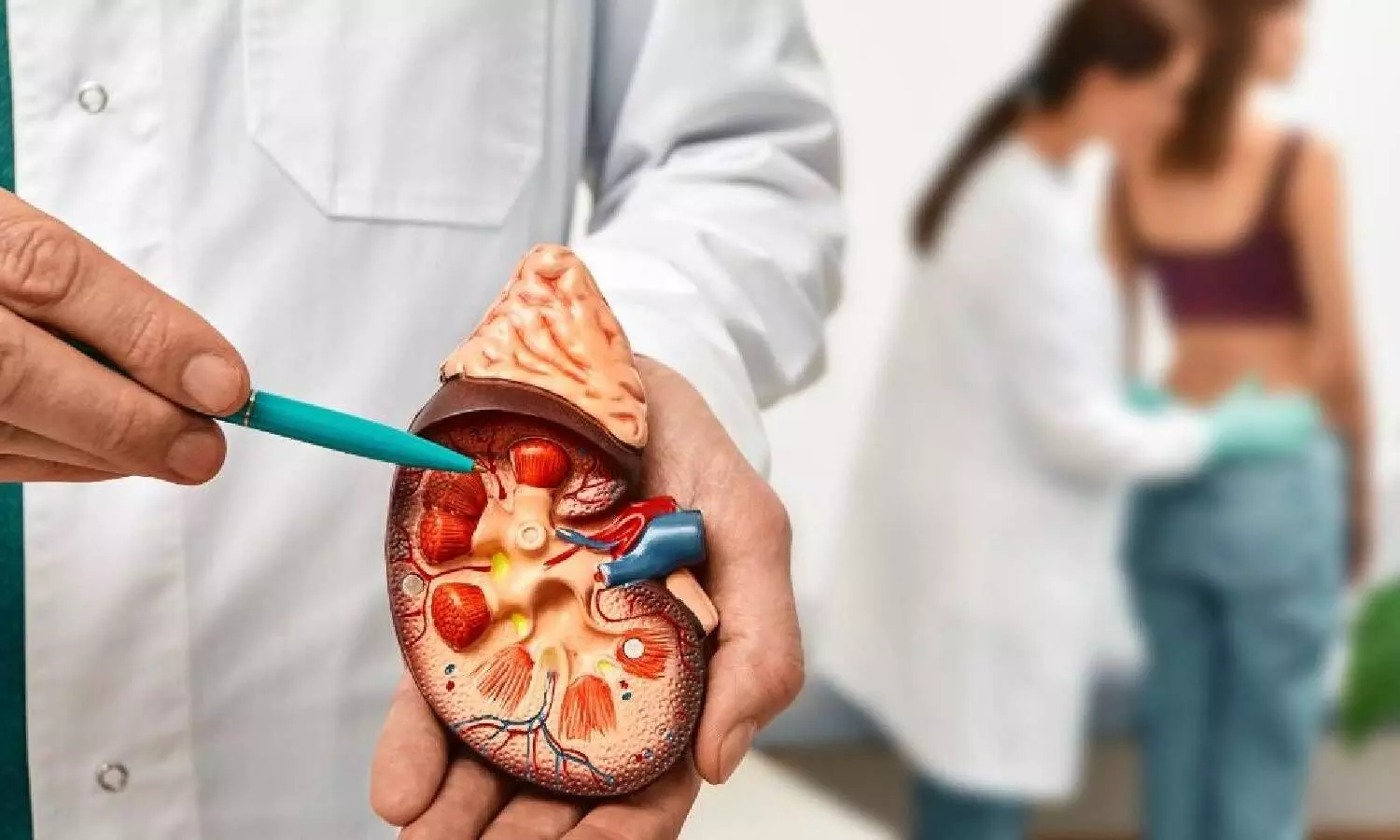Kidney disease and diabetes: What's the link?
Diabetes is the leading cause of kidney disease in India. Up to 40-50% of people with diabetes will experience signs of kidney damage in their lifetime.
By Newsmeter Network
Hyderabad: Diabetes is the leading cause of kidney disease in India. Up to 40-50% of people with diabetes will experience signs of kidney damage in their lifetime.
The rise in diabetes is leading to an alarming increase in the number of Indians living with kidney disease and kidney failure.
●According to the International Diabetic Federation, diabetes is an emerging challenge in India with around 1 in 11 Indians living with it.
●Nearly 5 to 6 out of 10 newly diagnosed with kidney disease have diabetes.
How diabetes affects the kidneys
High blood sugar over a long period of time causes damage to the filters of the kidneys, the glomeruli. This causes the kidneys to leak abnormally high levels of protein into the urine. Albumin is the main protein that leaks out from the damaged kidneys.
Diabetic kidney disease generally follows a pattern of slowly increasing albuminuria (albumin protein in the urine), followed by a decrease in kidney function. The damage is progressive and if left untreated, can lead to kidney failure also known as end-stage renal disease requiring dialysis or a kidney transplant. Most importantly, people with diabetic kidney disease are also at high risk for heart attack and stroke.
When does kidney damage occur in people with diabetes?
People with Type 1 diabetes develop or start showing signs of kidney damage within three to five years of their diagnosis. But Type 2 diabetes people, even those who have recently been diagnosed, may already have some form of kidney disease.
A large research trial in North America showed that there are certain factors that increase the risk of developing kidney disease in diabetes. These are:
●Lack of control over your glucose (blood sugar) levels.
●The length of time you have had diabetes.
●The more overweight you become.
●Having high blood pressure
Dr. Arun Kumar Ponna
Understanding your screening tests is important
Always, the earlier the signs and symptoms of kidney disease are detected, the better chances you have to reduce the chance of progression to advanced kidney disease. But there are no symptoms in the early stages, other than screening tests. As your kidneys are more damaged, you may notice swelling in your feet and legs.
As kidney disease progresses further, waste products start to build up in your blood making you weak and less energetic.
These are simple screening tests that check for protein called albumin in the urine (Urine Albumin-to-creatinine ratio (ACR). Secondly, Levels of creatinine (a waste product that our kidneys have to filter out) are measured in the blood, which allows calculating eGFR (Glomerular filtration rate) to estimate kidney function.
A recent study in India showed about 54% of diabetic patients were not screened for kidney problems. It is recommended that people with Type 2 diabetes should first be tested for kidney disease when they are diagnosed and Type 1 diabetics should be tested five years after their diagnosis.
Following that, individuals with Type 1 or Type 2 diabetes should undergo testing each year.
What can I do to keep my kidneys functioning?
Kidney disease progression can only be stopped or delayed through good blood sugar and blood pressure control, and medications.
Work hard to keep blood sugar within the target. HB1AC target around 7,
Keep your blood pressure in control recommended target 130/80.
Make healthy food choices. Prepare your own meals as much as possible. By reducing your sodium (salt) intake, you can better manage your blood pressure. Also, eat protein in moderate portions and avoid excessive protein intake if you have protein in the urine.
Maintain healthy lifestyle habits like exercising regularly, maintaining a healthy weight, or losing weight if needed, and quitting smoking.
Meet your doctor regularly: Take your medication as prescribed. This may include medications to help you slow the progression of kidney disease as well as reduce cardiovascular and kidney risks associated with diabetic kidney disease.
The author of this article is Dr. Arun Kumar Ponna, a consultant nephrologist at Yashoda Hospitals, Hyderabad